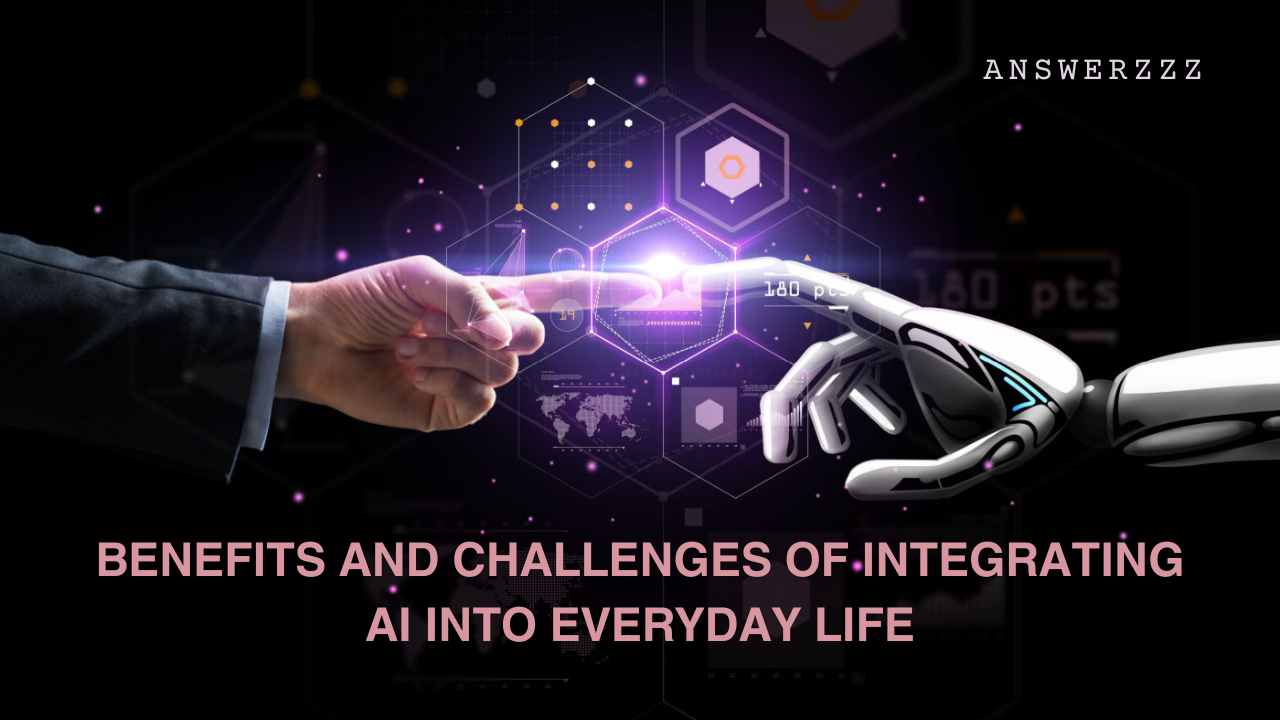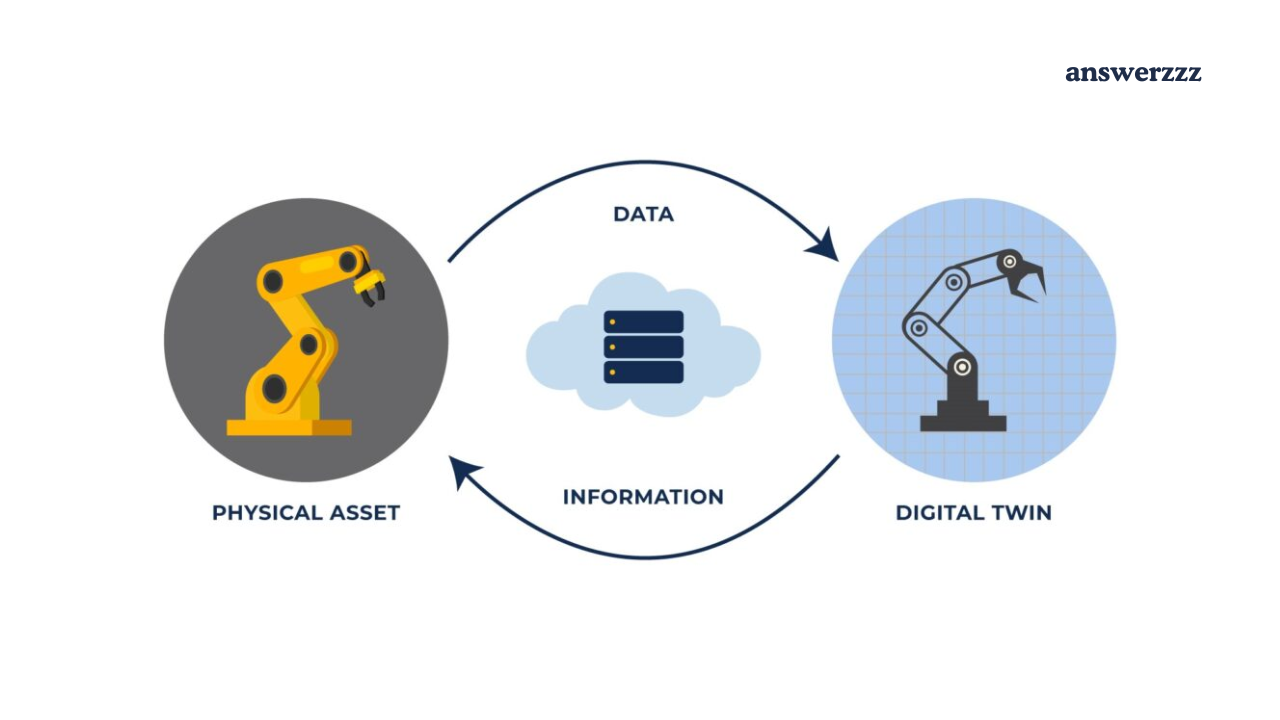Artificial Intelligence (AI) is no longer just a concept confined to science fiction; it has become a transformative force in our daily lives. From voice-activated assistants to smart home devices, AI technology is reshaping how we interact with the world around us. This article delves into the myriad benefits and challenges of integrating AI into everyday life, exploring its impact on various sectors, ethical implications, and the future of human-AI collaboration.
Understanding AI and Its Applications
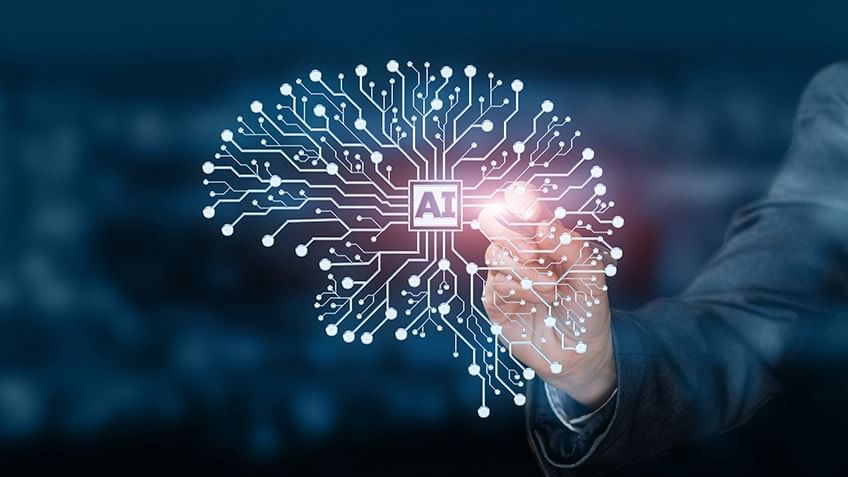
What is AI?
AI refers to the simulation of human intelligence in machines that are programmed to think and learn like humans. This technology encompasses a variety of fields, including machine learning, natural language processing, and computer vision. As AI continues to evolve, it becomes increasingly capable of performing complex tasks, making it an integral part of various industries.
Applications of AI in Everyday Life
AI is pervasive in numerous aspects of daily life, including:
- Healthcare: AI aids in diagnostics, patient monitoring, and personalized medicine.
- Finance: Algorithms analyze market trends, enhance fraud detection, and improve customer service.
- Transportation: Autonomous vehicles utilize AI for navigation and safety enhancements.
- Retail: AI personalizes shopping experiences and optimizes inventory management.
- Home Automation: Smart devices use AI to improve energy efficiency and convenience.
The Benefits of Integrating AI into Everyday Life
1. Enhanced Efficiency and Productivity
One of the most significant benefits of AI integration is increased efficiency. Machines can perform repetitive tasks at a speed and accuracy that surpasses human capabilities. For instance, in manufacturing, AI-driven robots can work around the clock without fatigue, leading to higher output levels and reduced production times. In the office, AI tools can automate mundane tasks such as data entry and scheduling, allowing employees to focus on more strategic initiatives.
2. Improved Decision-Making
AI can process vast amounts of data quickly, providing insights that aid in decision-making. In sectors like finance and healthcare, AI algorithms can analyze trends, identify risks, and forecast outcomes, enabling more informed choices. For instance, doctors can use AI-driven diagnostic tools to evaluate medical images, leading to quicker and more accurate diagnoses.
3. Personalized Experiences
AI enables the customization of products and services to meet individual preferences. Retailers can analyze customer data to recommend products tailored to each shopper’s tastes. Streaming services like Netflix and Spotify utilize AI algorithms to suggest content based on user behaviour, enhancing user engagement and satisfaction.
4. Enhanced Accessibility
AI technologies can greatly improve accessibility for individuals with disabilities. Voice recognition software and smart home devices allow users with mobility challenges to control their environments more easily. Additionally, AI-driven applications can provide real-time translation services, making communication more accessible across language barriers.
5. Data Analysis and Insights
In an era of big data, AI plays a crucial role in data analysis. Organizations can leverage AI to identify patterns, extract valuable insights, and make data-driven decisions. For example, businesses can use AI to analyze consumer behaviour and market trends, leading to more effective marketing strategies and product development.
6. Enhanced Safety and Security
AI technologies contribute to safety and security in various ways. In transportation, AI systems in autonomous vehicles can reduce accidents by responding more quickly than human drivers. In cybersecurity, AI algorithms can detect anomalies and potential threats, enhancing the protection of sensitive data.
The Challenges of Integrating AI into Everyday Life
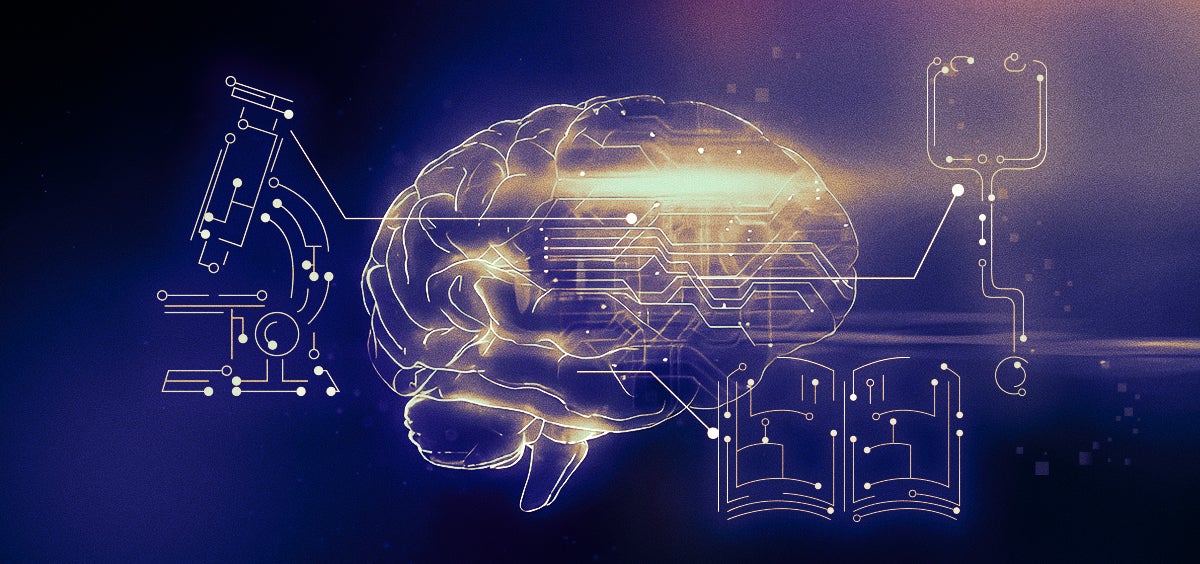
1. Ethical Concerns
The integration of AI raises numerous ethical questions. Issues such as data privacy, surveillance, and algorithmic bias are at the forefront of discussions surrounding AI technology. For instance, AI systems trained on biased data can perpetuate discrimination, leading to unfair outcomes in hiring, lending, and law enforcement.
2. Job Displacement
While AI creates efficiencies, it also poses a risk to job security. As machines take over routine tasks, there is a growing concern about job displacement in various industries. Workers in roles that AI can automate may find themselves out of work, leading to economic insecurity and the need for reskilling.
3. Dependency on Technology
As AI becomes more integrated into our lives, there is a risk of over-dependence on technology. Relying heavily on AI systems for decision-making can diminish critical thinking and problem-solving skills in individuals. Moreover, over-dependence on technology can lead to vulnerabilities, such as when systems fail or are compromised.
4. Security Risks
While AI enhances security, it also presents new vulnerabilities. Cybercriminals can leverage AI tools to develop sophisticated attacks, making it increasingly challenging to safeguard data. Additionally, the potential for AI-powered surveillance raises concerns about privacy and civil liberties.
5. High Implementation Costs
Integrating AI technologies can involve significant costs. Small and medium-sized enterprises may struggle to invest in AI systems, leading to disparities in technological advancement. Furthermore, the ongoing costs of maintenance and updates can strain resources, particularly for organizations with limited budgets.
6. Lack of Understanding and Awareness
A general lack of understanding and awareness of AI technology can hinder its adoption. Many individuals and organizations are unsure of how to effectively integrate AI into their processes, leading to missed opportunities. Education and training are essential to ensure that people can harness the full potential of AI.
Case Studies: AI in Action
AI in Healthcare
In healthcare, AI has shown tremendous promise in improving patient outcomes. For example, IBM’s Watson Health uses AI to analyze medical literature and patient records, assisting doctors in diagnosing diseases and developing treatment plans. This integration of AI technology has led to faster diagnoses and personalized treatment approaches, ultimately improving patient care.
AI in Retail
Retail giants like Amazon employ AI to enhance the shopping experience. AI algorithms analyze customer preferences to offer personalized product recommendations, while automated inventory management systems optimize stock levels. These AI-driven solutions have revolutionized the retail landscape, improving customer satisfaction and operational efficiency.
AI in Transportation
Autonomous vehicles, such as those developed by Tesla and Waymo, utilize AI to navigate roads and make driving decisions. These vehicles rely on machine learning algorithms to interpret data from sensors and cameras, enabling them to react to real-time traffic conditions. While challenges remain in terms of safety and regulatory approval, the potential for reduced traffic accidents and improved transportation efficiency is significant.
The Future of AI Integration
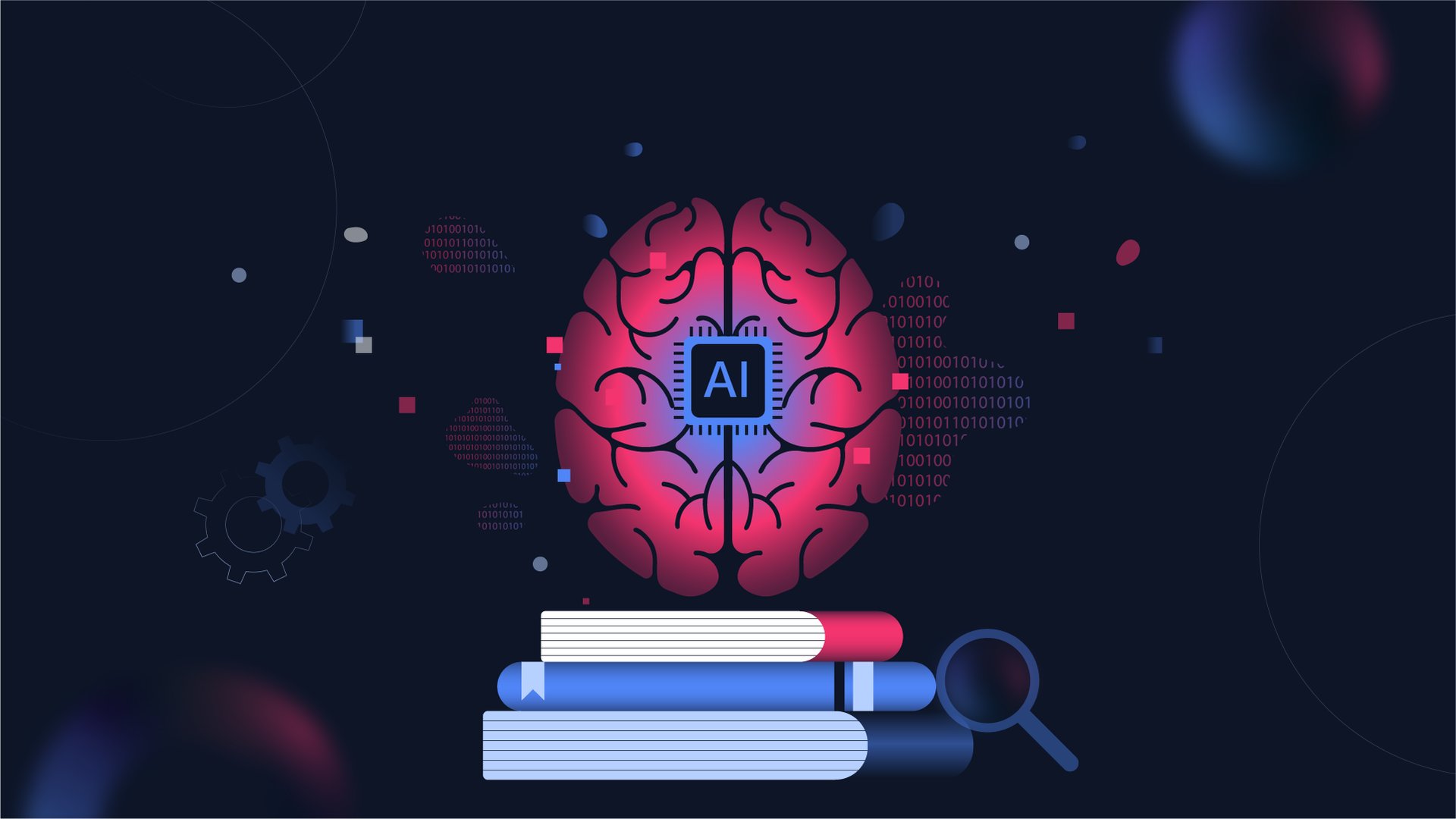
Embracing Human-AI Collaboration
The future of AI integration lies in fostering collaboration between humans and machines. Rather than replacing human workers, AI can augment their capabilities, enabling individuals to focus on higher-level tasks that require creativity and emotional intelligence. This symbiotic relationship can lead to greater innovation and productivity across various sectors.
Continuous Learning and Adaptation
As AI technology evolves, the need for continuous learning and adaptation becomes paramount. Organizations must invest in training and reskilling their workforce to ensure employees can work effectively alongside AI systems. By fostering a culture of learning, businesses can navigate the challenges of AI integration and harness its benefits.
Ethical AI Development
To address ethical concerns, it is crucial to prioritize responsible AI development. Organizations should implement transparent practices, ensuring that AI systems are trained on diverse and representative data sets. Additionally, ethical guidelines should be established to govern the use of AI in sensitive areas such as hiring and law enforcement.
Policy and Regulation
Governments and regulatory bodies must play an active role in shaping the future of AI integration. Establishing clear policies and regulations can help address issues related to data privacy, security, and ethical considerations. Collaboration between stakeholders, including tech companies, policymakers, and civil society, will be essential to ensure responsible AI deployment.
Integrating AI into everyday life offers a wealth of benefits, including enhanced efficiency, improved decision-making, and personalized experiences. However, it also presents significant challenges, including ethical concerns, job displacement, and security risks. To fully realize the potential of AI, society must embrace responsible integration that prioritizes human well-being, fosters collaboration, and addresses the ethical implications of this powerful technology. By navigating these complexities thoughtfully, we can create a future where AI enhances our lives while safeguarding our values.
